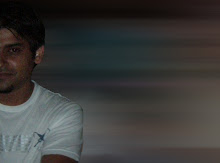 | ||
| 'Mumbai attacks are a conspiracy against Pakistan', says a banner at a Lahore rally |
Magazine| Dec 15, 2008
view from pakistanSome urge calm, but most Pakistanis think their country is just India's usual whipping boy
AMIR MIR
 Huma Meer, Teacher Huma Meer, Teacher"If jehadis were involved, they were renegades trying to sabotage the peace process. India and Pakistan should not let the blame game strengthen such rogue elements."
Mujahid Ali Khan, New York-based Pakistani
Mehreen Jabbar, Filmmaker
*** As Mumbai convulsed under the shock and awe dealt by terrorists on the night of November 26, smses began to fly around asking friends to switch on their TVs. Bleary-eyed and stunned, they watched in horror evil's visage unfold, recoiled as it flaunted its destructive power. There was an outpouring of empathy for those trapped in the luxury hotels. The response of Mehreen Jabbar, director of Ramchand Pakistani, was typical: "These attacks are deplorable, simply inhuman."As night turned to morning and Indian TV anchors raised their voices in unison to shrillness at the sight of the carnage, empathy soon segued into dismay—and then anger. Their fears that Pakistanis would be blamed for the attacks had come true, turning them livid. Bushra Munir, a Punjab University student, declared, "It's so apparent that the Mumbai attacks have been carried out by some Indian elements—either Hindu or Muslim extremists. I think Hindu extremists like the Shiv Sena leadership lost its wits at the arrest of an Indian army officer, Lt Col Purohit, for masterminding the Samjhauta Express (2007) and the Malegaon (2008) blasts. This dastardly act has conveniently shifted the focus from the Shiv Sena to Pakistan." Indeed, Purohit's alleged role in blasts that were earlier blamed on Pakistan finds a repeated echo in Pakistani reactions to Mumbai. Film actress Sana says India's own conflicts have brought "upon them this bleak day". To clarify, she adds, "The Beelzebub of this deplorable act has to be Hindu extremists who wanted to add to the misery of Indian Muslims." Even journalists echo Sana. Khaled Qayyum of the Daily Express explains, "India's finger-pointing at Pakistan, in the absence of concrete evidence, seems only to be a continuation of its ostrich-like refusal to face up to its own problems." Such statements lead Chaudhry Fawad Ahmed, a lawyer with First Law Company, to declare, "Reactions on both sides of the border are insane. While India's reaction was not well-measured, Pakistan went too far in condemning India for blaming it." Fawad feels the involvement of Pakistani jehadi groups couldn't be ruled out."These jehadis are not sane enough to weigh the consequences of their action." But Geo TV anchor Suhail Warraich says, "If some people from Pakistan are indeed involved in the Mumbai catastrophe, they must be non-state actors." Fawad, however, says the raging debate can't camouflage the fact that Pakistan stands cornered in the international arena. He explains, "The country that earned the label of being the frontline ally in the war on terror is now itself being tagged as a terrorist-supporting country. What a tragedy!" But others feel Fawad ignores Pakistan's deplorable economic condition as a factor that would preclude such misadventure. "Pakistan couldn't be involved in Mumbai, primarily because its political-economic situation doesn't allow it to afford it," argues New York-based Pakistani Mujahid Ali Khan. This school of thought believes India ought to understand that the Pakistani establishment isn't homogeneous. As Huma Meer, who teaches at Froebel's International School, says, "If at all there are some jehadis involved, they have to be renegades seeking to sabotage the Indo-Pak peace process." Warraich rules out the possibility of President Asif Ali Zardari's complicity in the Mumbai attacks. He points to the anomaly: "The Zardari government's pro-peace statements of friendship with India have been criticised by the fundamentalists here." Those in India who ignore this fact, he argues, are only helping terror groups to "destabilise the democratic system here". The debates raging in the drawing rooms here proffer a slew of measures India and Pakistan could take to combat terrorism, from which Pakistanis continue to suffer daily. Says Mehreen, "India and Pakistan need to evolve a joint strategy to prevent such occurrences. They have to desist from jingoism because it can eventually lead to a nuclear war." Agrees Qayyum, "Mumbai should be an eye-opener for both India and Pakistan. They must build a new resolve to fight terror." India, says Huma, must bolster its government and help it tackle terrorism. "Therefore," she argues, "the political leadership of the two countries, instead of letting the blame game strengthen rogue elements, should evolve an effective anti-terror mechanism." As the air thickens with war-mongering, one realises its ultimate fruits are mired in futility. One knows renewed Indo-Pak hostilities could push liberal voices like Huma to the margins. |


 Khaled Qayyum, Journalist, Daily Express
Khaled Qayyum, Journalist, Daily Express Bushra Munir, Student, Punjab University
Bushra Munir, Student, Punjab University






